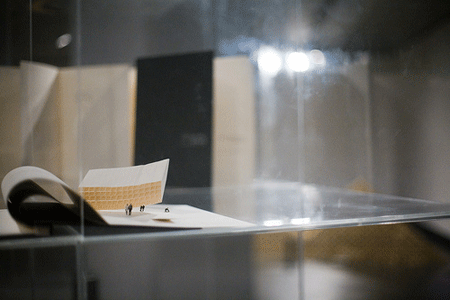FP7 Proposal ‘MeLA’ delivered!
January 31st, 2010
[Micheal Lee Hong Hwee: Foundations. The Consolation of Museology]
Following, the FP7 Call for Grant on Museums and Our Proposal ‘MeLA’ delivered.
National museums and galleries emerged in the context of the consolidation of the nation-state in Europe from the 18th century onwards. At the beginning of the 21st century, the intellectual underpinnings of many of these institutions are being questioned, while at the same time, new forms of interaction with the publics are formed. The purpose is to develop a new role for national museums and libraries that allows them, in an innovative way, to adequately reflect past trends and processes that are not constrained by national borders, engage the interest of new social groups and audiences, while simultaneously acting as agents of social cohesion and stability in Europe.
Research could look at the impact of museums, galleries and libraries (including virtual libraries) on identities and values through time and in Europe today, including research on memorialisation and the institutionalisation of cultural memory, as well as on how to best coordinate the activities and collections of museums galleries and libraries across Europe for the benefit of a European and global audience.
Research should also look at how contemporary research in the social sciences and the humanities can be applied in the re-evaluation and re-interpretation of collections and archives in museums, galleries and libraries; this will imply linkages between researchers and archivists in the museum, gallery and library sectors and the academic sector. The increased role of Information and Communication Technologies in museum and gallery displays or in virtual libraries, as well as scenarios for the organisation and content of post-national museums could be looked at.
Proposal Theme: Abstract
European Museums and Libraries in/of the Age of Migrations
“In the world in which I travel, I am endlessly creating myself”[1].
Acronym: MeLA
Accepting as true the assertion that a city, with its works and its good museum, today finds itself in the middle of a theme involving the construction of a modern civic community[2], the Proposal intends to overturn the idea of museum as a place of consolidation, conservation and transmission of the identity of a dominant social group, as well as the traditional relationship between this institution and the civil society it represents[3], in order to define new museological and ostensive strategies for the multiethnic and intercultural metropolis, built both by Migration ‘Tsunami’ and the European Union process, in the last 30 years.
With this purpose, changing the concept of contact zone formulated by M. L. Pratt[4], the Proposal will reconsider the identity of Museums as a historical theme, tackled on the basis of new cultural productions and new relations. Consequently, considered as “contact areas”, their organizational structure – understood as “collection” – becomes a topical historical, political and moral relation: an exchange of power relations. In a manner that is in some aspects utopian, museums are being reconsidered as public venues for collaboration, shared control and complex translation; places of power turned into places of cultural integration[5]. It is clear that a vision of this kind appears, to some extent, utopian due to the history of museums and their relationship with national contexts, but the current hybridation of contemporary culture calls for a profound revision.
To fulfill the overall task, the project has been divided into different themes and in several actions mainly performed through specific WPs. This should lead both to a better investigation and to a stronger networking.
The quality of presented Proposal and its connected results are – as consequence – committed to WPs innovative structure drafted upon ‘Think Tank’ principles (proposing cross-fertilization between Management and Research). The Think Tank process is used for an in-depth consideration of issues and challenges whose relevance reaches beyond the individual person or programme and the immediate time frame.
Investigations ‘on site’ (through interviews, monitoring of case study, etc.) and ‘in the field’ (through critical deepening of literature and case study) will complete research patrols and prepare to the more productive phase of Deliverables (Web portal, Public International Conferences, Books and other media editing, on site installations, etc.). Every WP has one or two curatorial Partners, and – in collaboration with Consortium – they are responsible for critical interpretation of collected data and info.
The full Proposal delivered can be downloaded here:
[1] F. Fanon, Blak skin, White mask, London 1986, p. 229
[2] Ref.: A. Emiliani, introduction, Politiche dell’allestimento, Bologna 1995)
[3] Ref.: T. Bennett, The birth of the Museum, London & New York 1995
[4] Ref.: M. L. Pratt, Imperial Eyes. Travel Writing and Transculturation, London & New York 1992.
[5] J. Clifford, Routes, Harvard 1997, pp. 70-72, pp. 86-90.




